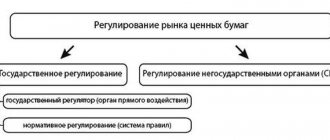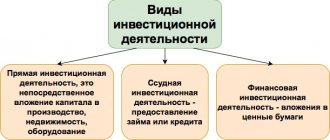In Russia, changes have been made to laws aimed at protecting and encouraging investment
On April 1, 2021, a number of laws were adopted introducing important changes to the legislation on the protection and promotion of investment in Russia.Key changes are introduced by Federal Law No. 69-FZ, which complements the existing legal regulation in the field of private investment and provides for new government support measures in this area.
The remaining two adopted Federal Laws No. 70-FZ and No. 71-FZ also make concomitant changes to the Tax and Budget Codes of the Russian Federation applicable to private investors.
The changes are expected to provide investors with new benefits such as:
• application of the stabilization clause throughout the entire investment period;
• subsidies for full or partial reimbursement of expenses incurred related to the creation of infrastructure facilities, including the cost of paying interest on loans and credits.
By providing the above benefits, the state demonstrates its intention to increase the flow of investment into the Russian economy and increase the investment attractiveness indicator, which is currently at a fairly low level compared to other developing countries.
Who is eligible for benefits?
To receive benefits, an investor must enter into an agreement with the state on the protection and promotion of capital investments (“ SPPK ”) in relation to the implementation of a new investment project in any sector of the Russian economy, with the exception of:
• gambling business;
• production of excisable goods (tobacco products, alcoholic beverages, production of crude oil and natural gas, except liquefied natural gas);
• wholesale and retail trade;
• construction of administrative and business centers and shopping centers, as well as residential buildings;
• activities of financial organizations supervised by the Central Bank of the Russian Federation (except for the issue of securities for the purpose of financing an investment project).
What benefits will be available under the SPP?
Stabilization clause
An investor implementing an investment project within the framework of the SZPK will be able to take advantage of the so-called stabilization clause (“grandfather clause”). This clause ensures that after the conclusion of the relevant SPA, the investor's business conditions will not worsen as a result of changes in legislation. However, there are certain exceptions to this general rule. In addition, some laws are not subject to such a clause (for example, laws adopted to ensure the defense of the country and the security of the state, to prevent terrorist acts and eliminate their consequences, as well as to prevent the occurrence of other force majeure circumstances).
In fact, this is the main method of incentives provided to investors within the framework of the SPPK, since other support measures largely depend on the provisions of the specific SPPK concluded as part of the implementation of a separate investment project.
Each SZPK provides for the validity period of the stabilization clause. However, certain time restrictions apply. Depending on the volume of capital investment, the period of application of such a clause may be six, fifteen or twenty years, which in some cases can be extended for another six years.
Tax benefits
The new edition of Article 5 of the Tax Code of the Russian Federation describes in detail the application of the above-mentioned stabilization clause in relation to the tax regime of the investor.
In particular, it is provided that the size of the investor’s tax burden will remain for the entire period of capital investment under the SZPK (that is, it will remain at the same level as when concluding the SZPK).
The extension of the stabilization clause to specific taxes depends on those authorities that participate in the SPA. It is obvious that maximum coverage will be provided within the framework of the SZPK with the participation of authorities at all levels. Such multilateral agreements may include both federal taxes (for example, income tax and value added tax) and regional and local taxes, including corporate property tax, transport and land taxes.
Subsidies
According to amendments to the Budget Code, investors may be provided with subsidies to compensate for their capital costs associated with the creation of transport, energy, utilities, social and digital infrastructure.
The adopted laws distinguish between the so-called supporting and accompanying infrastructure. The first is intended to be used exclusively for the purpose of implementing the investment project, while the accompanying infrastructure can also be used for other purposes or by third parties.
The amount of subsidies for the creation of supporting infrastructure is limited to 50% of actual costs incurred. In the case of accompanying infrastructure, there are no such restrictions.
Other government support measures
The law allows the inclusion of other support measures, including government ones, in the SZPK, provided that the volume of such measures cannot exceed the total amount of the investor’s capital investments.
How to apply benefits?
The SPA can be concluded as part of a private or public initiative.
In the first case, the investor applies to the competent government authorities with an application to conclude an SPPK for the implementation of a new investment project. In this case, a competition is not required.
In the second case, federal or regional authorities can report on planned investment projects by posting declarations on the implementation of such projects and conducting competitive selection of investors.
During negotiations on the conclusion of the SZPK, the receipt of subsidies and other government support measures is linked to the investor’s obligations to fulfill certain conditions for the implementation of the investment project. For example, as part of meeting such conditions, the investor may be required to:
• achieve certain results or performance indicators;
• put the infrastructure facility into operation;
• ensure the right of free public use of constructed infrastructure;
• support constructed infrastructure facilities at your own expense.
After signing, the SZPK comes into force from the day it is entered into the special register.
It is worth noting that the process of concluding a SPPK is less complicated in comparison with another, recently changed mechanism for stimulating investors - a special investment contract (“ SPIC ”). As in the case of an SZPK, a SPIC may provide for a stabilization clause and certain tax benefits for the investor.
However, the ultimate goals of these two mechanisms are different: the SZPK is mainly aimed at supporting the creation of private infrastructure, while the SPIC is intended to ensure the introduction of modern technologies in Russian industries.
What should you pay attention to?
Despite the fact that the adopted amendments are aimed at protecting the legal and financial position of investors and should be assessed positively, the following factors must be taken into account before concluding an SPPK:
• The amendments do not directly provide for any other tax benefits or preferences for investors (for example, reduced tax rates, deferment of tax payments, etc.).
• From a tax perspective, the stabilization clause does not apply to new taxes (even if they increase the investor's tax burden) that replace similar taxes with a similar tax base that are payable after the conclusion of the SZPK.
• The adopted legislation does not contain clarifications as to whether the stabilization clause will apply to changes in legislation that improve the investor’s situation. In particular, with regard to taxation, a direct exception is provided only for positive changes introducing tax benefits (as well as establishing their conditions) for corporate property tax, transport and land taxes. However, the stabilization clause does not apply to taxes that constitute the main burden of taxpayers (for example, VAT and corporate income tax).
• The public party's liability under a PPA is generally limited to compensation for actual damages suffered by the investor.
Other Important Issues to Discuss
Since the changes introduced provide for an extensive list of by-laws, the adoption of which is necessary both at the federal, regional and local levels (for example, the procedure for concluding an SZPK, the standard form of the SZPK, the procedure for maintaining the SZPK register, etc.), it is not yet completely clear, how these changes will be implemented in practice.
The SPP will be concluded using a special state information system, which should be launched no earlier than April 2, 2021.
We recommend that you closely monitor developments in legislation in this area.
Once all applicable regulations have been adopted and come into effect, the conclusion of a PPA may be of interest to companies investing in large infrastructure projects and, in some cases, may be an alternative to entering into concession agreements and public-private partnership agreements.
Legislation
In any country, economic relations in the field of investment must be orderly. In addition, the capabilities and responsibilities of all participants in the investment process must be clearly defined. It is for these reasons that the state sets itself the task of forming a high-quality and applicable legislative framework.
Investment legislation is a system of laws that are aimed at regulating one or another aspect of investment. For example, this could be a law whose purpose is to regulate investment activities that arise between representatives of different countries. If the activity of investment institutions is developed in the state, this becomes a necessity for the development of a law regulating processes and relationships.
Guarantees for investors and investment protection
The Federal Law “On Investment Activities in the Russian Federation” gives investors guarantees and determines measures to protect capital investments. This is discussed in its fourth chapter. Its provisions cannot but overlap with other parts of the act. Some sanctions against problematic players in the investment market are also spelled out here. You need to know and understand:
- The investor is guaranteed stability of operating conditions for the entire period of development of the investment project up to the payback point. But this period cannot exceed 7 years from the start of financing.
- As an exception (and only for priority production and infrastructure projects), an extension of the guaranteed period is allowed.
- The government itself determines the assessment criteria for unfavorable investment changes in activity that may affect the success of project implementation. It may introduce restrictions and prohibitions on investment activities.
- If the investor does not fulfill his obligations, he is deprived of part of the benefits or their full set.
Capital investments can be separately insured, nationalized or even requisitioned. If nationalization is possible only with compensation from the state apparatus, then requisitioning is forced.
Social investing
111 - Federal Law “On investing funds to finance the funded part of a labor pension” is intended to regulate operations carried out in the field of formation of pension savings and their possible further investment. The law consists of forty-three articles designed to determine the specifics of operations for accumulating and investing pension funds. The law also contains information about the specifics of control over operations for the formation of pension savings by government agencies and society.
Foreign investors
The following law on investment activities is applied in economic relations arising as a result of investment operations by foreign economic entities.
Federal Law 160 “On Foreign Investments” has been in force for sixteen years. It was created to determine the characteristics of activities carried out within Russia by non-resident investors. The law performs the following functions:
- promotes the flow of foreign capital into the Russian economy;
- promotes the effective use of innovations and technologies coming from abroad;
- providing guarantees to non-residents carrying out investment operations on the territory of the Russian Federation;
- promoting compliance with international investment law.
The law on investments in the Russian Federation made by non-residents is not used in regulating operations of investing capital in the development of financial intermediaries and organizations related to the humanitarian sphere registered in Russia. The law does not apply to the activities of entities registered in territories with special economic conditions.
The second article explains the basic concepts used in investment activities carried out by foreign economic entities.
The third article is devoted to the nuances of regulating the activities of foreign investors in Russia.
The fourth article of the Law provides information on the legal regime for the work of foreign investors and enterprises financed by foreign investors. The article describes the features of the activities of enterprises and their structural divisions financed by foreign investors. The concept of a commercial organization with foreign capital is also defined here.
According to the fifth article of the Law, all foreign investors claim to receive guarantees to protect their property and income from the consequences of negative situations. The sixth article provides information on guarantees to foreign investors in the use of various forms of investment.
Articles from the seventh to the tenth issue are devoted to guaranteeing foreign investors the protection of rights and property in the event of force majeure situations arising as a result of:
- nationalization of enterprises in which foreign capital is invested;
- negative changes in market conditions;
- controversial situations.
Articles numbered eleven and twelve regulate cash flows that are associated with the investment activities of foreign entities, as well as their movement within Russia or abroad.
The thirteenth article of the law on investments of foreign investors regulates the acquisition of securities by a foreign investor or an organization with foreign capital. The fourteenth article deals with guarantees provided to foreign investors in privatization operations. The next, fifteenth, article provides information on the legal regulation of transactions involving the acquisition of tangible assets by a foreign investor.
The sixteenth and seventeenth articles of the Federal Law on investments made by foreign investors deal with the provision of benefits relating to customs duties and benefits provided by other economic entities of the Russian Federation to foreign investors.
The eighteenth article describes the features of regulating the actions of foreign investors in the field of competition and compliance with antimonopoly legislation. The next article of the law deals with foreign investors insuring their property on the territory of the Russian Federation.
The twentieth article is intended to regulate actions on the creation and liquidation of companies with foreign investment. The following article provides information on the legal regulation of the creation and liquidation of branches of such companies.
The twenty-second article of the law provides information on the requirements regarding the activities and assessment of the capital of a branch of a company with foreign investment. The following article highlights the features of the development and implementation of state policy in the field of investment carried out by non-residents.
The twenty-fourth article defines the federal body responsible for the procedure for attracting foreign capital to the Russian economy. Articles number twenty-five to twenty-eight regulate the specifics of the application and entry into force of this law.










